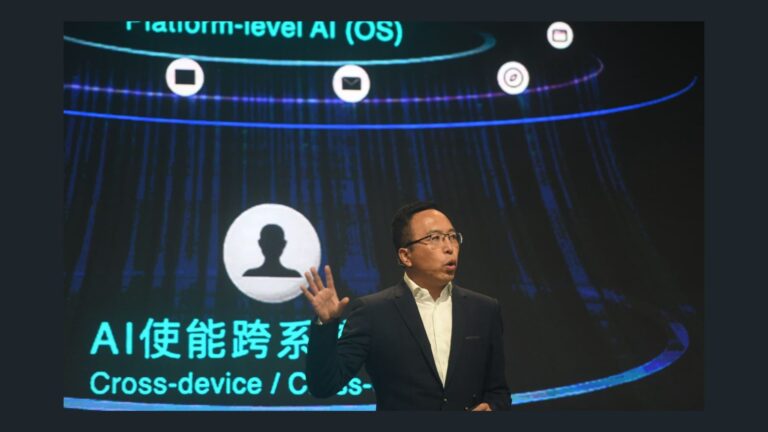As Apple gears up for the anticipated launch of its AI-centric features, Chinese smartphone manufacturers are ramping up efforts to showcase their own advancements in artificial intelligence. Companies such as Huawei, Xiaomi, and Vivo are leveraging AI technologies to enhance user experiences and maintain competitive advantages in a rapidly evolving market.
AI Innovations on Display
Chinese smartphone companies are known for integrating AI into their devices, resulting in enhanced functionalities that appeal to a broad user base. Huawei’s Mate series, for example, utilizes AI Camera technology to automatically adjust settings based on scene recognition, ensuring optimal image quality in various conditions. According to Huawei, this innovation allows users to capture stunning photographs with ease, reinforcing the company’s position as a leader in mobile imaging technology.
Xiaomi, another major player in the market, incorporates AI into its MIUI software. This system uses AI algorithms to optimize battery usage and enhance app performance by analyzing user habits. Such functionality extends the battery life of devices and improves overall efficiency. Meanwhile, Vivo focuses on AI-driven photography tools that enable users to apply sophisticated filters and enhancements in real time, demonstrating the company’s commitment to innovative features.
Voice Recognition Advancements
Voice recognition technology is another area where Chinese smartphone brands excel. Xiaomi’s Xiao AI and Huawei’s Celia are AI-driven voice assistants that understand natural language, facilitating hands-free user interactions. These systems continuously improve through machine learning, adapting to users’ speech patterns and preferences, which enhances accuracy and user satisfaction. This focus on intuitive voice recognition sets Chinese manufacturers apart in the highly competitive smartphone landscape.
Performance Optimization
In addition to photography and voice recognition, Chinese companies are employing AI to optimize overall device performance. Huawei’s EMUI software utilizes AI to manage background applications effectively, reducing latency and enhancing multitasking. Similarly, Xiaomi’s MIUI learns user habits to prioritize frequently used apps, ensuring a smooth and responsive experience, even on mid-range devices. Vivo employs similar techniques to maintain operational efficiency across various tasks.
Competition with Apple
As Apple prepares to unveil its AI features, the competitive landscape intensifies. Chinese smartphone manufacturers recognize the potential impact of Apple’s innovations and are highlighting their own AI capabilities through aggressive marketing campaigns. This drive for competition stimulates innovation, as manufacturers refine existing features and develop new ones to cater to evolving consumer demands.
User-Centric Applications
The focus on user-centric AI applications is a strategic priority for Chinese companies. Huawei’s AI Life app integrates various smart home devices, providing users with centralized control for enhanced convenience. Xiaomi’s Mi Home app offers similar functionality, while Vivo’s AI assistant provides personalized recommendations to enrich user engagement with devices. By prioritizing user experience, these companies aim to establish themselves as leaders in smart technology.
Future of AI Integration
Looking ahead, the future of AI integration in smartphones appears promising. Chinese manufacturers are expected to continue enhancing their AI capabilities, with improvements in machine learning algorithms allowing devices to learn and adapt more effectively. The combination of AI with the emerging 5G technology also presents new opportunities, enabling sophisticated applications that enhance gaming, streaming, and smart home automation experiences.
Conclusion
As the smartphone market evolves, Chinese manufacturers are poised to meet the challenges posed by competitors like Apple through continued innovation in AI technologies. With a focus on enhancing user experiences in photography, voice recognition, and device performance, these companies are setting the stage for a new era of intelligent devices. The competition is likely to spur further advancements, ensuring that consumers benefit from cutting-edge technology in their daily lives.
As the launch of Apple Intelligence approaches, all eyes will be on how these innovations shape consumer choices and the overall landscape of the smartphone industry.

